
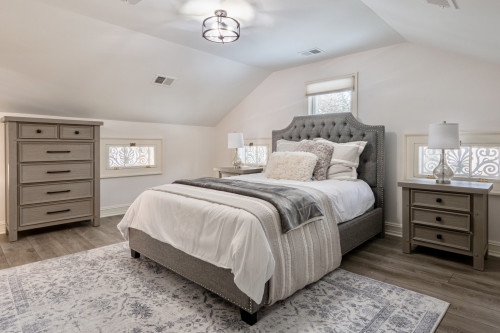







Liberty House Recovery Center
Verified Center
This provider's information has been quality-checked by Recovery.com's Research Team for accuracy and completeness, including center verification through appropriate third-party organizations.
Treatment Focus
This center treats substance use disorders and co-occurring mental health conditions. Your treatment plan addresses each condition at once with personalized, compassionate care for comprehensive healing.
Primary Level of Care
Offering intensive care with 24/7 monitoring, residential treatment is typically 30 days and can cover multiple levels of care. Length can range from 14 to 90 days typically.
Treatment Focus
This center treats substance use disorders and co-occurring mental health conditions. Your treatment plan addresses each condition at once with personalized, compassionate care for comprehensive healing.
Primary Level of Care
Offering intensive care with 24/7 monitoring, residential treatment is typically 30 days and can cover multiple levels of care. Length can range from 14 to 90 days typically.
Provider's Policy
Liberty House Recovery works with most major PPO & POS insurance plans to help cover many of the costs associated with our treatment program. We are an in-network provider for Health Alliance Plan of Michigan (HAP) Insurance & Blue Cross Blue Shield of Michigan currently. To get a free consultation, fill out our insurance verification form and one of our caring treatment coordinators will contact you shortly. Regardless of whether you come to our program or not, we will help you find the best treatment options that fit your individual needs when seeking treatment for substance abuse.
Liberty House Recovery Center
Liberty House Recovery Center
About Liberty House Recovery Center
Liberty House Recovery Center is a family-owned, independent facility committed to clinical excellence through best practices and continuous improvement. It upholds high standards of patient care and outcomes, exceeding industry benchmarks with evidence-based approaches. As in-network providers for major insurers—including Health Alliance Plan (HAP)—the center prioritizes accessibility. Its Clinical Leadership Team recruits top professionals to deliver individualized, robust care that sets clients and their loved ones up for success
Discover Peace and Personal Growth in Recovery
The journey of recovery has a different path for every person suffering from the disease, but the feeling of liberty and peace of freeing oneself from addiction to substances or unhealthy patterns of behavior is one of the greatest personal achievements any individual can attain.
Experience Luxury and Safety in Addiction Treatment
Liberty House Recovery's comprehensive services of exceptional quality with the utmost discretion offers personalized treatment with a commitment to excellence that is reflected in all aspects of the path to recovery. It is fully tailored to individual needs in a secluded and beautifully-designed environment, but one with all the opportunities, resources, and safety of a fully-licensed inpatient medical clinic.

Highlights from the Center
Highlights
These highlights are provided by and paid for by the center.
Customized Treatment Plans
Perfect for Professionals
Private Rooms Available
Tech Friendly
Center Overview
Treatment Focus
This center treats substance use disorders and co-occurring mental health conditions. Your treatment plan addresses each condition at once with personalized, compassionate care for comprehensive healing.
Joint Commission Accredited
The Joint Commission accreditation is a voluntary, objective process that evaluates and accredits healthcare organizations (like treatment centers) based on performance standards designed to improve quality and safety for patients. To be accredited means the treatment center has been found to meet the Commission's standards for quality and safety in patient care.

Liberty House Recovery Center
Insurance Accepted
Cash Pay Rates
Estimated Cash Pay Rate
Center pricing can vary based on program and length of stay. Contact the center for more information. Recovery.com strives for price transparency so you can make an informed decision.




Recovery.com Verified Listing
Recovery.com verified that the name, location, contact information and license to operate for this treatment provider are valid and up-to-date.

Joint Commission Accredited

Licensed by Michigan
Recovery.com is an independent, third-party mental health resource. Verification does not imply endorsement and does not guarantee the quality of treatment services.
Meet Your Care Team

Dr. Susan Abed
CEO & Founder

Dr. Wisam Salman
Medical Director
MD

Dr. Ashley Casey
Co-Founder / Program Director
LLMSW, CAADC-DP

Daniel Casey
Co-Founder / Director of Admissions
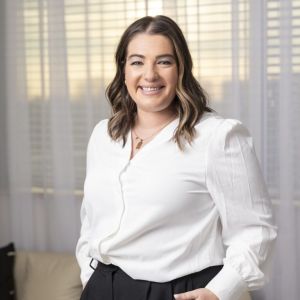
Theresa Taylor
Clinical Director
LMSW, CAADC-DP

Chelsey Seymour
Director of Operations

Keith Abed
Director of Finance
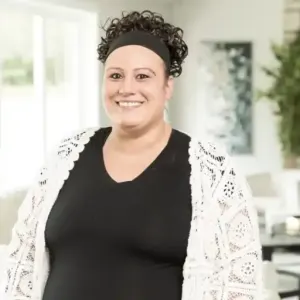
Rachael Taylor
Operations Coordinator
CPRC
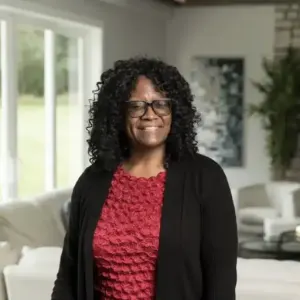
Sharon Odum
Nurse Practitioner
ACNP-BC
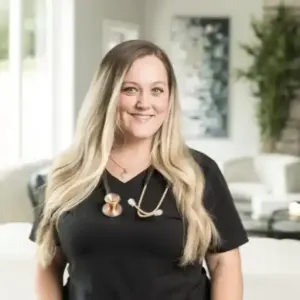
Kaylene Slater
Director of Nursing
RN
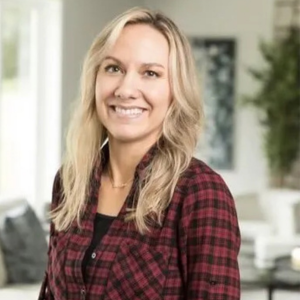
Ashley Lang
Primary Therapist
LMSW, CAADC

Tabitha Neff
Therapist
LLPC
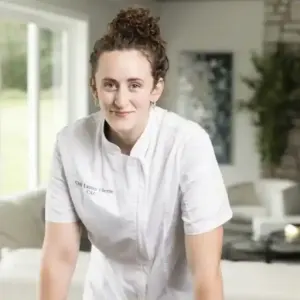
Lauren Cheyne
Executive Chef

Leza Nuculaj
Licensed Cosmetologist

Falon Cleary
Director of Housekeeping
Your Care Options
Specializations
Alcohol
Using alcohol as a coping mechanism, or drinking excessively throughout the week, signals an alcohol use disorder.
Co-Occurring Disorders
A person with multiple mental health diagnoses, such as addiction and depression, has co-occurring disorders also called dual diagnosis.
Cocaine
Cocaine is a stimulant with euphoric effects. Agitation, muscle ticks, psychosis, and heart issues are common symptoms of cocaine abuse.
Drug Addiction
Drug addiction is the excessive and repetitive use of substances, despite harmful consequences to a person's life, health, and relationships.
Executives
Executive treatment programs typically directly support the needs of people who manage businesses and may provide flexible schedules and office space to allow work during treatment.
Family Therapy
Family therapy addresses group dynamics within a family system, with a focus on improving communication and interrupting unhealthy relationship patterns.
Methamphetamine
Methamphetamine, or meth, increases energy, agitation, and paranoia. Long-term use can result in severe physical and mental health issues.
Opioids
Opioids produce pain-relief and euphoria, which can lead to addiction. This class of drugs includes prescribed medication and the illegal drug heroin.
Who We Treat
Executives
Executive treatment programs typically directly support the needs of people who manage businesses and may provide flexible schedules and office space to allow work during treatment.
Young Adults
Emerging adults ages 18-25 receive treatment catered to the unique challenges of early adulthood, like college, risky behaviors, and vocational struggles.
Midlife Adults
For adults ages 40+, treatment shifts to focus on the unique challenges, blocks, and risk factors of their age group, and unites peers in a similar community.
Professionals
Busy, high-ranking professionals get the personalized treatment they need with greater accommodations for work, privacy, and outside communication.
Treatment Services
Detox
Detox fully and safely removes toxic substances from the body, allowing the next steps in treatment to begin with a clean slate.
Licensed Primary Mental Health
Some primary care providers offer mental health diagnosis and treatment. This can prevent patients from developing more serious conditions.
Residential
In a residential rehab program, patients live onsite, with access to daily treatment and 24-hour care. An average stay is 30-90 days.
Approaches
Evidence-Based
A combination of scientifically rooted therapies and treatments make up evidence-based care, defined by their measured and proven results.
Family Involvement
Providers involve family in the treatment of their loved one through family therapy, visits, or both–because addiction is a family disease.
Individual Treatment
Individual care meets the needs of each patient, using personalized treatment to provide them the most relevant care and greatest chance of success.
Therapies
1-on-1 Counseling
Patient and therapist meet 1-on-1 to work through difficult emotions and behavioral challenges in a personal, private setting.
Meditation & Mindfulness
A practiced state of mind that brings patients to the present. It allows them to become fully aware of themselves, their feelings, and the present moment.
Trauma-Specific Therapy
This form of talk therapy addresses any childhood trauma at the root of a patient's current diagnosis.
Mindfulness Therapy
This ancient practice can be mental, emotional, and even spiritual. In meditation, you focus your attention on the present moment without judgement.
Adventure Therapy
This experiential approach uses the physical and emotional challenges of outdoor activities as tools for personal growth.
Animal Therapy
Animals can inspire trust and self-worth. In this experiential therapy, guided interactions are used to improve social skills and emotion regulation.
Art Therapy
Visual art invites patients to examine the emotions within their work, focusing on the process of creativity and its gentle therapeutic power.
Conditions We Treat
Anxiety
Anxiety is a common mental health condition that can include excessive worry, panic attacks, physical tension, and increased blood pressure.
Bipolar
This mental health condition is characterized by extreme mood swings between depression, mania, and remission.
Depression
Symptoms of depression may include fatigue, a sense of numbness, and loss of interest in activities. This condition can range from mild to severe.
Post Traumatic Stress Disorder
PTSD is a long-term mental health issue caused by a disturbing event or events. Symptoms include anxiety, dissociation, flashbacks, and intrusive thoughts.
Trauma
Some traumatic events are so disturbing that they cause long-term mental health problems. Those ongoing issues can also be referred to as "trauma."
Substances We Treat
Alcohol
Using alcohol as a coping mechanism, or drinking excessively throughout the week, signals an alcohol use disorder.
Benzodiazepines
Benzodiazepines are prescribed to treat anxiety and sleep issues. They are highly habit forming, and their abuse can cause mood changes and poor judgement.
Chronic Relapse
Consistent relapse occurs repeatedly, after partial recovery from addiction. This condition requires long-term treatment.
Co-Occurring Disorders
A person with multiple mental health diagnoses, such as addiction and depression, has co-occurring disorders also called dual diagnosis.
Cocaine
Cocaine is a stimulant with euphoric effects. Agitation, muscle ticks, psychosis, and heart issues are common symptoms of cocaine abuse.
Drug Addiction
Drug addiction is the excessive and repetitive use of substances, despite harmful consequences to a person's life, health, and relationships.
Ecstasy
Ecstasy is a stimulant that causes intense euphoria and heightened awareness. Abuse of this drug can trigger depression, insomnia, and memory problems.
Heroin
Heroin is a highly addictive and illegal opioid. It can cause insomnia, collapsed veins, heart issues, and additional mental health issues.
Languages
Aftercare
Care Designed for Your Needs
Personal Amenities
Amenities
Special Considerations
Executive Program
Addiction and mental health treatment for executives typically involves high discretion, greater technology access, and more private, 1-on-1 care.
Flexible technology policies
Centers with flexible technology policies allow professionals to stay in touch with work and give patients a greater sense of connection and normalcy.
Gender-specific groups
Patients in gender-specific groups gain the opportunity to discuss challenges unique to their gender in a comfortable, safe setting conducive to healing.
Activities
Off-Site Activities
Yoga
Yoga is both a physical and spiritual practice. It includes a flow of movement, breathing techniques, and meditation.
Learn More About the Center
What to Expect
Read more about the admissions process, amenities, and therapy modalities at Liberty House.
Tour Liberty House Recovery Center
Browse through pictures of Liberty House to learn more about their location and the amenities they offer.
Frequently Asked Questions for Liberty House
Read through some common questions regarding admissions, treatment, aftercare, and questions loved ones may have for Liberty House.
How Liberty House Recovery Center Can Help
Learn more about how Liberty House can help overcome addiction through therapy, life skills, and various clinical resources.
What people are saying
Treatment
5.0
Accommodations
5.0
Food & Nutrition
5.0
Value
5.0
Pros
- Access to Nature (16)
- Excellent & Effective Treatment Programming (16)
- Gourmet & Nutritious Food (16)
- Luxurious Accommodations (16)
DR
Treatment in 2025 • (30 days) • Reviewed 12/17/25
Former Client
•Michigan
Liberty House Recovery Center
Kaliayev
Treatment in 2023 • (14 days) • Reviewed 02/14/25
Former Client
•Logistics
•Holly, MI
Dave P
Treatment in 2025 • (60 days) • Reviewed 06/20/25
Former Client
•Software Developer
•Birmingham, Michigan
JA
Treatment in 2025 • (30 days) • Reviewed 02/17/25
Former Client
•Sous Chef
•Michigan
Megan C
Treatment in 2025 • (30 days) • Reviewed 04/25/25
Former Client
•Finance Director
•Clarkston, MI





